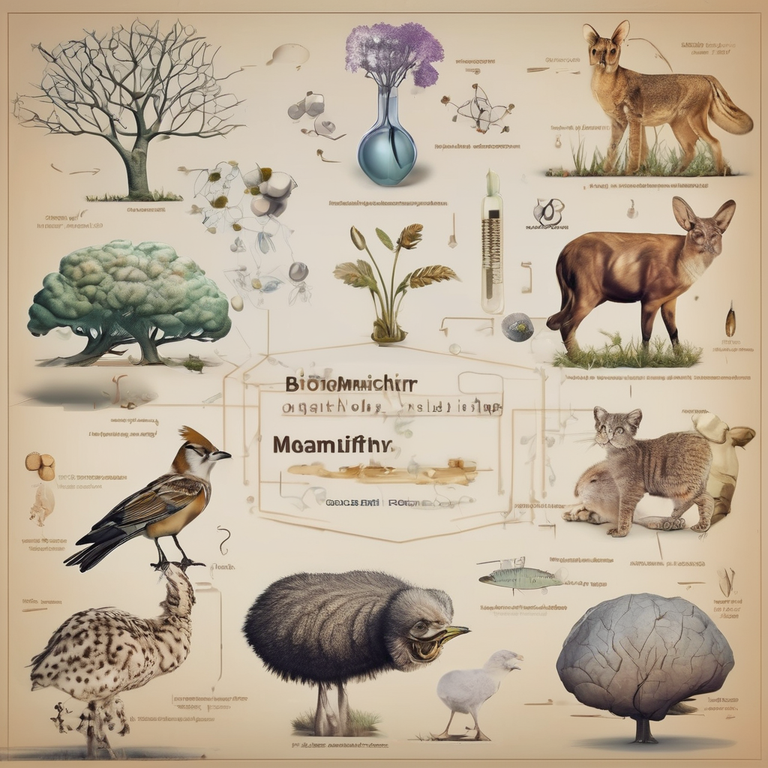Science is fun, I'm sure anyone and everyone who studied science will agree with me. Before I chose science as the path I wished to study, I was scared of some subjects being offered in science classes, such as physics, mathematics, and chemistry. Biology was my favorite because it's easy to read and understand, unlike others that have calculations. But then I wanted to become a medical doctor, which meant I had to include chemistry and physics in the subject I offered, and that was compulsory. I had no choice but to summon courage and become a science student. My first year in secondary school then was a bit rough. I hadn't gotten my bearings in these subjects, and I was scared; I didn't want to be withdrawn from science to other classes. I intensified my efforts and studied more, which helped me, I must say.

After graduating from secondary school, the fight to become a medical doctor began, but at times, a man proposed, and God disposed of it. I was unable to fulfill that dream of mine, but I wanted something similar; no matter what it takes, I want to be in the science field. I have loved science from the onset, I love anything that has to do with experiments, diagnosing, and getting results. This placed me on my newfound path as a biochemist. According to the questions, I asked a few people before writing this post, I got to know that people had no or little knowledge about what biochemistry is all about. Some say it's a study of part of biology and chemistry. Taking a few topics out of both biology and chemistry, then combining them into one. Sometimes, when I'm asked about my discipline and I reply, the question that follows is, which job can you get with that? If I can't get a job as a certified biochemist then should I have studied social studies then? But that's a question for another day.
Biochemistry is a study that has paved the way for many other science courses. This study has helped to shape our understanding of lives at the molecular level. Early scientists couldn't place what biochemistry was in early life; they saw it as a life process governed by vital force not until there was a change from one of the great scientists, Friedrich Wöhler, who synthesized urea from ammonium cyanate, this is a chemical compound unrelated to living organisms.
This was when scientists doubted that biological compounds could only be produced by living organisms. This scientist's work marked the dawn of biochemistry as a scientific discipline and provided the first look into the chemical nature of life. When I say science is fun, don't argue, just enjoy the ride. Centuries later, many scientists began to conduct different kinds of experiments since they had been given a heads up and biochemistry is now known. Many conducted fermentation experiments demonstrated that living organisms catalyse chemical reactions leading to the identification of different enzymes. Many other metabolic pathways were discovered by different scientists that gave us a better understanding of biological and chemical processes in the human body, such as glycolysis and citric acid cycle, which is also known as Kreb's cycle because it was discovered by a scientist named Hans Krebs. These pathways reveal how cells extract energy from nutrients, providing an understanding of life's energy dynamics.
In the late centuries such as the 20th century, knowledge was now more advanced than before with the help of technology. Biochemistry has now been rooted, which led to another development that was married to biochemistry, and that is genetics. This led to the development of DNA (deoxyribonucleic acid) transcription and translation. The test people now do to know the paternity status of their child. Have you seen the goodness in science? It is this study of genetics and recombinant DNA that has helped scientists in the production of therapeutic proteins such as insulin (used for diabetic patients) marking the onset of modern biotechnology.
Biochemistry has had a profound impact on medicine, transforming disease diagnosis, treatment, and prevention. Enzymes and hormones discovered through biochemistry have become the basis for life-saving drugs such as penicillin, which we all use when we have an injury. Talking about biotechnology, its reliance on biochemical principles has advanced agriculture practices and environmental conservation. Genetically modified organisms, which we know as GMOs, have increased crop yields and resistance to pests. I will talk more about this in another post. Biochemistry also drives industrial innovations such as biofuels which offer sustainable energy alternatives. Biochemists are needed at the forefront of understanding diseases such as cancer, the COVID-19 pandemic, and many more. The knowledge of biochemistry of detailed insights into protein structures and functions have facilitated the design of targeted therapies such as kinase inhibitors for cancer and antiviral drugs.
The chronicles of biochemistry reflect humanity's relentless quest to understand life at its fundamental level. Biochemistry has continuously evolved, unraveling the complexities of living organisms and transforming science, medicine, and industry. As it progresses to more territories, biochemistry holds the potential to address pressing global challenges and redefine the boundaries of what is scientifically possible. Welcome to the sci-fi-multiverse; let's talk science and learn more about science.
Thanks for your time and your comments will be appreciated.
Posted Using INLEO
We thank the world of chemistry that has helped to lay some solid foundations in our present world
It's worth it